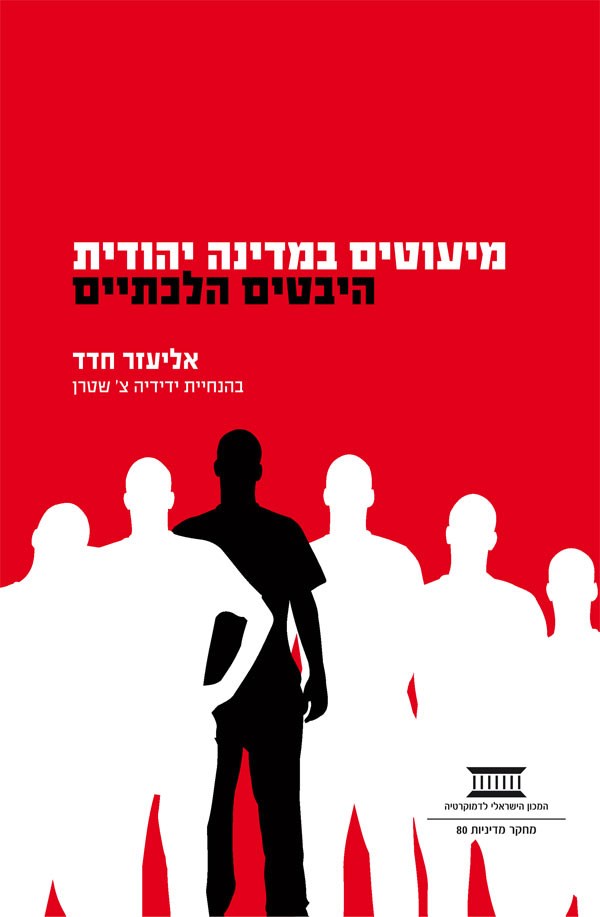

Publications Regarding non-Jewish immigration
Articles
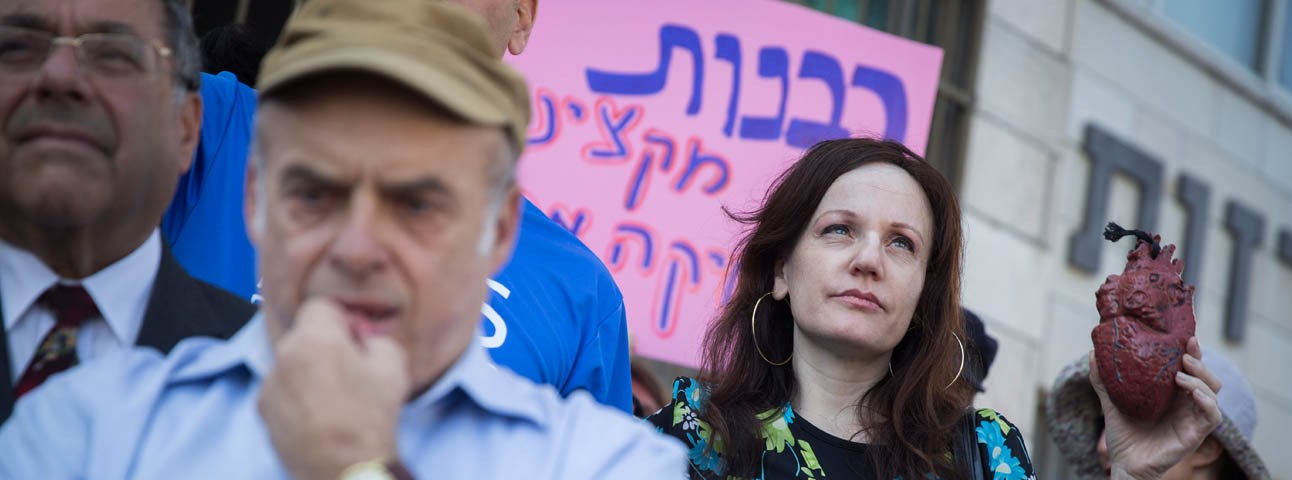
The Chief Rabbinate of Israel vs. the Jews
Written By: Dr. Shuki Friedman
Turning 1.2 million Israelis with FSU origins into a state-sanctioned punching bag is intolerable, and calls for radical and immediate change

How Jewish Israelis Feel Towards Non-Jews and the Current Conversion Process – Shavuot Survey
Written By: Prof. Tamar Hermann, Dr. Or Anabi
Conversion is a central theme of the upcoming holiday of Shavuot when the biblical story of Ruth the Moabite – widely considered the first convert to Judaism – is traditionally read. In the spirit of the holiday, we decided to examine what types of relationships Jewish Israelis are ready to have with non-Jews. We also looked into what Jewish Israeli think about the topic of conversions in general and the conversion process in Israel in particular.

Netanyahu’s East Africa Visit: Negotiating Away Israel’s ‘Unwanted’ Asylum-Seekers
Written By: Dr. Ruvi Ziegler
Earlier this month, Prime Minister Benjamin Netanyahu concluded a visit to East Africa. Uganda is doubly symbolic in collective Jewish-Israeli memory. In 1903, the ‘Uganda proposal’ put the territory forward as a supposedly alternative site for Jewish self-determination; the Zionist Congress rejected it. And Uganda was also the site of the Entebbe raid on 3-4 July 1976, when an Israeli commando squad rescued 103 civilians being held hostage after a plane was hijacked en route from Israel to France.

In the land of hidden legislative aims: HCJ 8665/14 (detention of asylum-seekers in Israel- Round 3)
Written By: Prof. Reuven (Ruvi) Ziegler
IDI researcher Dr. Ruvi Ziegler appraises the judgment of the Israeli Supreme Court in the third round of constitutional challenges to legislation authorizing detention of asylum-seekers in Israel. He critiques the judicial assessment of explicit and hidden legislative objectives, the role of international refugee law in the decision, and the normative question of irregular entry of asylum-seekers, and highlights legal challenges concerning the removal of asylum-seekers from Israel to third states.
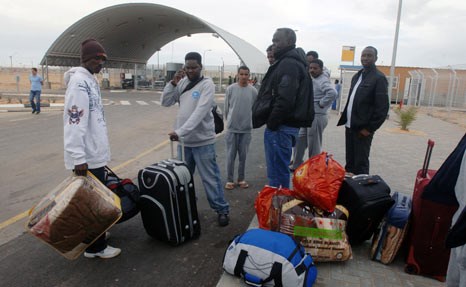
High Time for a Fair Israeli Asylum Regime
Written By: Prof. Reuven (Ruvi) Ziegler
As World Refugee Day approaches, Dr. Ruvi Ziegler argues that it is high time for Israel to adopt a fair asylum policy that would mitigate the predicament of Eritrean and Sudanese nationals.

Detention of African Asylum Seekers in Israel: Welcome to Round Three
Written By: Prof. Reuven (Ruvi) Ziegler
On December 8, 2014, just before the Knesset dissolved itself to prepare for early elections, it enacted the Law for Prevention of Infiltration and Ensuring the Departure of Infiltrators from Israel. IDI's Dr. Reuven (Ruvi) Ziegler reviews this development.
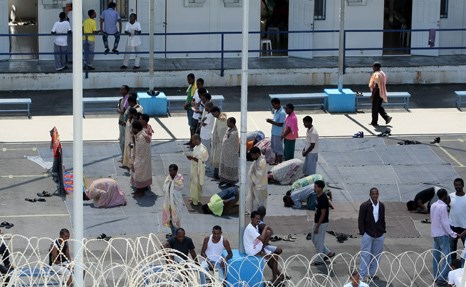
Second Strike and You Are (Finally) Out? The Quashing of the Prevention of Infiltration Law (Amendment No. 4)
Written By: Prof. Reuven (Ruvi) Ziegler
IDI Researcher Dr. Reuven (Ruvi) Ziegler presents a brief overview of the Israeli High Court of Justice's decision to strike down Amendment No. 4 of the Prevention of Infiltration Law, and explores several themes that may be of comparative constitutional interest.
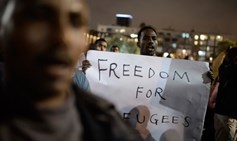
The Prevention of Infiltration Act in the Supreme Court: Round Two
Written By: Prof. Reuven (Ruvi) Ziegler
IDI researcher Dr. Reuven (Ruvi) Ziegler explains why he believes the Supreme Court should overturn Amendment No. 4 of the Prevention of Infiltration Act just as it invalidated its predecessor.

What Can We Learn about Israeli Policy Making from the Supreme Court's Ruling on the Anti-Infiltration Law?
Written By: Dr. Talya Steiner
Attorney Talya Steiner warns that a Supreme Court's judgment that struck down an amendment of Israel's anti-infiltration law as unconstitutional points to significant flaws in Israel's process of policy-making.

Quashing Legislation Mandating Lengthy Detention of Asylum-Seekers
Written By: Prof. Reuven (Ruvi) Ziegler
Dr. Reuven (Ruvi) Ziegler shares observations on the decision of the Israeli Supreme Court that an amendment of the Prevention of Infiltration Law that mandated lengthy detention of asylum seekers is unconstitutional.

Asylum Seekers in Israel: A Snapshot
Written By: Prof. Reuven (Ruvi) Ziegler
On the occasion of International Migrants Day and an IDI roundtable on Israeli immigration policy, IDI researcher Adv. Reuven (Ruvi) Ziegler provides an overview of the treatment of African asylum seekers who have crossed into Israel via its southern border.

Trapped between the Fences
Written By: Prof. Reuven (Ruvi) Ziegler
IDI researcher Attorney Reuven (Ruvi) Ziegler argues that the response of the Israeli government to the plight of 20 Eritrean asylum seekers trapped between the fences of the Israeli-Egyptian border tests Israel's adherence to rulings of its own Supreme Court.
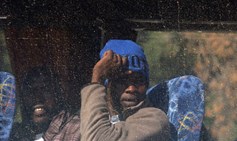
A Matter of Definition: On ‘Infiltrators’ and ‘Asylum Seekers’ in Israel
Written By: Prof. Reuven (Ruvi) Ziegler
In this article, IDI Researcher Adv. Reuven (Ruvi) Ziegler surveys Israel's regulations regarding refugees and asylum seekers and points to three areas—eligibility for asylum, the rights of asylum seekers, and detention—in which they are incompatible with the UN refugee convention.

